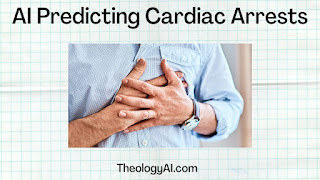When a person dies, they leave behind memories for others. Some of them are good, and some may not be that great. We still read and learn about many people who lived centuries ago through history or writing. There is a natural acceptance that the person who died will not come back, and people move on after a period of grieving. One to three generations may know and talk about previous generations.
Now let us get to something new, which is related to AI. Using AI, there is a new way to have the dead person talk and answer questions. It is not some sorcery or speaking to spirits. The video is recorded in advance and used during memorial or funeral service. With the help of AI, the dead person will address the questions which people ask and will talk to people. An AI tool called StoryFile enabled funeral attendees to interact in a real conversation.
The technology creates the illusion of a real-time conversation. StoryFile made its services available in the UK recently, while the service has been open to US-based customers since early 2021. People have raised concerns about this technology, but I see this as an improved version of existing things. Once I saw a funeral in which a message spoken by the dead person during someone else funeral service was played. Everyone could see the deceased person preach at his funeral service. We continue to see videos and photos of people who have passed away. With the help of AI, the tool makes it more interactive, and there is no real conversation with the dead person.
It raises questions about how we view things once a person dies. Different religions and cultures have a different takes on this issue. It will depend on a person's worldview regarding how they will react to such technological developments. Some will say let us leave the dead in peace and have memories. It can torment some to be repeatedly exposed to the deceased person through video or interactive technology. It can create phycological issues and make someone think the person is not dead. It can create pain and develop different challenges.
As AI progress, I am expecting more tools to come that will raise a lot of questions like this. In many cases, your worldview and how you view life will influence how you view and react to these things. For now, do not be surprised if you go to a memorial or funeral service and see the dead person come and answer your questions. It is just a technology behind the scene. Humans have not reached the point where they can bring back the dead to talk in reality.
Some links for more details.
Gravitas: Dead woman 'addresses' mourners at her own memorial service
Dead woman talks to 'shocked' mourners at her own funeral — using AI





.png)

